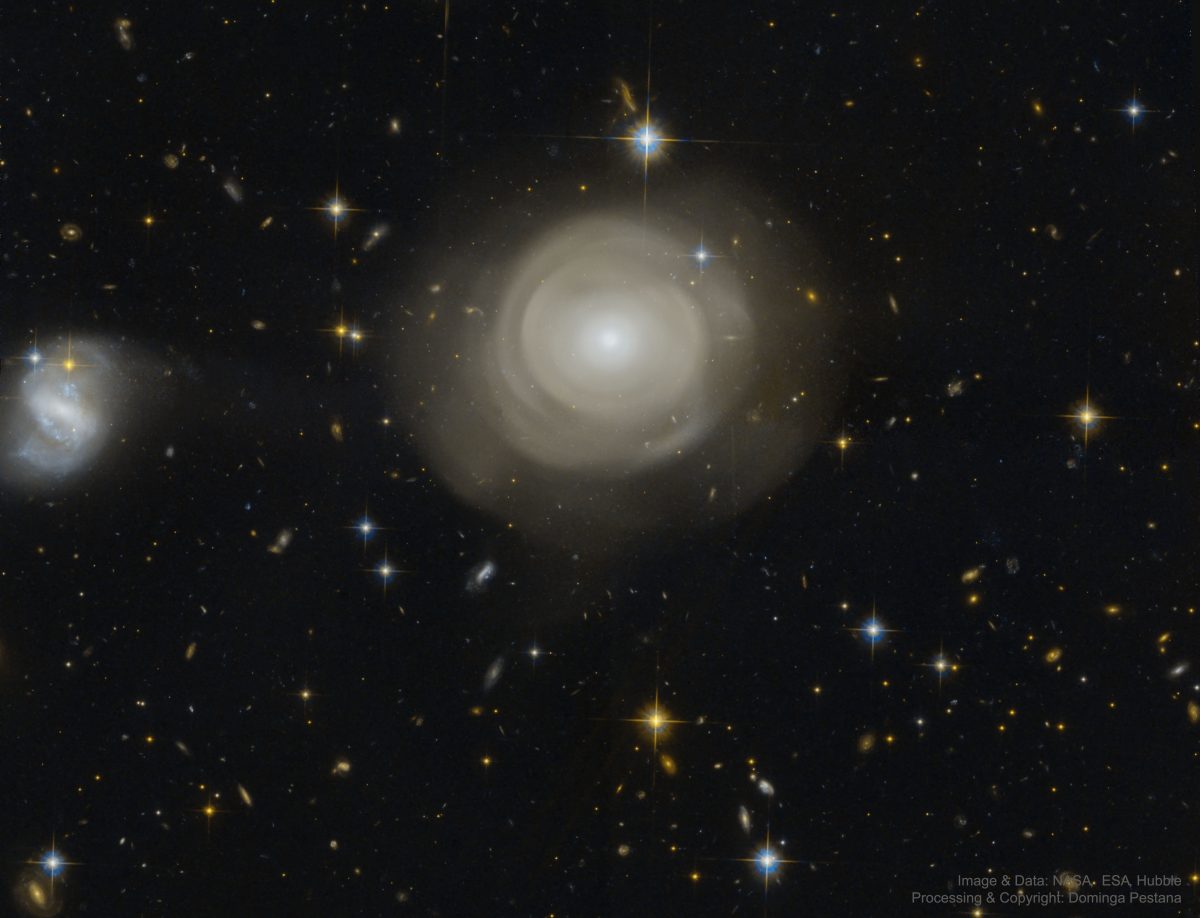Blog
Lyle Pearce Lovett (born November 1, 1957) is an American country singer-songwriter and actor. Active since 1980, he has recorded 13 albums and released 25 singles to date, including his highest entry, the number 10 chart hit on the U.S. Billboard Hot Country Songs chart, “Cowboy Man”. Lovett has won four Grammy Awards, including Best Male Country Vocal Performance and Best Country Album. It’s Not Big It’s Large was released in 2007, where it debuted and peaked at number 2 on the Top Country Albums chart. A new studio album, Natural Forces, was released on October 20, 2009 by Lost Highway Records. The last studio album on his Curb Records contract, Release Me, was released in February 2012.
Lovett was born in Houston, Texas
more...Lou Donaldson (born November 1, 1926) is a jazz alto saxophonist. He is best known for his soulful, bluesy approach to playing the alto saxophone, although in his formative years he was, as many were of the bebop era, heavily influenced by Charlie Parker.
Donaldson was born in Badin, North Carolina. He attended North Carolina Agricultural and Technical State University in Greensboro in the early 1940s. He enlisted in the U.S. Navy during World War II and was trained at the Great Lakes bases in Chicago, where he was introduced to bop music in the lively club scene.
Donaldson is best known now for his soulful, funky 1960s recordings that feature some of the greatest soul jazz players ever to record. These include guitarists Grant Green, Melvin Sparks, Jimmy Ponder and George Benson, organists John Patton, Billy Gardner, Lonnie Smith, Charles Earland and Leon Spencer, Jr, drummers Ben Dixon (one of the great underrated groovers), and Leo Morris/Idris Muhammad, whose work on the kit defined the funky boogaloo soul jazz sound of the late 1960s. Records such as Good Gracious! (1963, Blue Note), Musty Rusty (1965, Cadet), Alligator Bogaloo [sic], Mr. Shing-A-Ling (1967, Blue Note) and Hot Dog (1970, Blue Note), among others, are quintessential examples of the jukebox, funky, soulful 1960s jazz that came to define “rare grooves” in the soul jazz revival period of the 1990s.
https://www.youtube.com/watch?v=Y4_CAag8rII
more...Portugal
more...PSR B1509-58 is a pulsar approximately 17,000 light-years away in the constellation of Circinus discovered by the Einstein X-Ray Observatory in 1982. It appears approximately 1,700 years old, and it sits in a nebula that spans about 150 light years. NASA described the star as “a rapidly spinning neutron star which is spewing energy out into the space around it to create complex and intriguing structures, including one that resembles a large cosmic hand.” Which is also known by name “Hand of God”. Spin rate is “almost 7 times per second”.
more...
Booker Telleferro Ervin II (October 31, 1930 – August 31, 1970) was an American tenor saxophone player. His tenor playing was characterised by a strong, tough sound and blues/gospel phrasing. He is best known for his association with bassist Charles Mingus.
Ervin was born in Denison, Texas. He first learned to play trombone at a young age from his father, who played the instrument with Buddy Tate. After leaving school, Ervin joined the United States Air Force, stationed in Okinawa, during which time he taught himself tenor saxophone. After completing his service in 1953, he studied at Berklee College of Music in Boston. Moving to Tulsa in 1954, he played with the band of Ernie Fields.
Ervin moved to New York City to join Horace Parlan‘s quartet, with whom he recorded Up & Down and Happy Frame of Mind (both for Blue Note Records). Ervin worked with Charles Mingus from 1956 to 1963. During the 1960s, Ervin led his own quartet, recording for Prestige Records with, among others, ex-Mingus associate pianist Jaki Byard, along with bassist Richard Davis and Alan Dawson on drums.
Ervin later recorded for Blue Note Records and played with pianist Randy Weston, with whom he recorded between 1963 and 1966. Weston has said: “Booker Ervin, for me, was on the same level as John Coltrane. He was a completely original saxophonist…. He was a master…. ‘African Cookbook’, which I composed back in the early ’60s, was partly named after Booker because we (musicians) used to call him ‘Book,’ and we would say, ‘Cook, Book.’ Sometimes when he was playing we’d shout, ‘Cook, Book, cook.’ And the melody of ‘African Cookbook’ was based upon Booker Ervin’s sound, a sound like the north of Africa. He would kind of take those notes and make them weave hypnotically. So, actually the African Cookbook was influenced by Booker Ervin.”
Ervin died of kidney disease in New York City in 1970, aged 39.
https://www.youtube.com/watch?v=UEhcsJvUwsA
more...Jean-Baptiste “Illinois” Jacquet (October 30, 1922 – July 22, 2004) was an American jazz tenor saxophonist, best remembered for his solo on “Flying Home“, critically recognized as the first R&B saxophone solo.
Although he was a pioneer of the honking tenor saxophone that became a regular feature of jazz playing and a hallmark of early rock and roll, Jacquet was a skilled and melodic improviser, both on up-tempo tunes and ballads. He doubled on the bassoon, one of only a few jazz musicians to use the instrument.
Jacquet was born to a Black Creole mother and father, named Marguerite Trahan and Gilbert Jacquet, in Louisiana and moved to Houston, Texas, as an infant, and was raised there as one of six siblings. His father was a part-time bandleader. As a child he performed in his father’s band, primarily on the alto saxophone. His older brother Russell Jacquet played trumpet and his brother Linton played drums.
https://www.youtube.com/watch?v=sQjDAFCXLS8
more...Ethel Waters (October 31, 1896 – September 1, 1977) was an American singer and actress. Waters frequently performed jazz, big band, and pop music, on the Broadway stage and in concerts, but she began her career in the 1920s singing blues. Waters notable recordings include “Dinah“, “Stormy Weather“, “Taking a Chance on Love“, “Heat Wave“, “Supper Time“, “Am I Blue?“, “Cabin in the Sky“, “I’m Coming Virginia“, and her version of the spiritual “His Eye Is on the Sparrow“. Waters was the second African American, after Hattie McDaniel, to be nominated for an Academy Award. She was the first African-American to star on her own television show, in 1939, and the first African-American woman to be nominated for an Emmy Award, in 1962.
https://www.youtube.com/watch?v=FN8-Yy8Rl3s
more...https://www.youtube.com/watch?v=qkkvfXNnQIU
more...New Zealand
more...The Black Eye Galaxy (also called Evil Eye Galaxy; designated Messier 64, M64, or NGC 4826) is a galaxy which was discovered by Edward Pigottin March 1779, and independently by Johann Elert Bode in April of the same year, as well as by Charles Messier in 1780. It has a spectacular dark band of absorbing dust in front of the galaxy’s bright nucleus, giving rise to its nicknames of the “Black Eye” or “Evil Eye” galaxy. M64 is well known among amateur astronomers because of its appearance in small telescopes. It is a spiral galaxy in the Coma Berenices constellation.
The interstellar medium of Messier 64 consists of two counter-rotating disks that are approximately equal in mass. The inner disk contains the prominent dust lanes of the galaxy. The stellar population of the galaxy exhibits no measurable counter-rotation. Possible formation scenarios include a merger with a gas-rich satellite galaxy in a retrograde orbit, or the continued accretion of gas clouds from the intergalactic medium. It has a diameter of 52,962 light-years (16.238 kpc)
more...
Trilok Gurtu (Kashmiri: ترلوک گرٹو, Marathi: त्रिलोक गुर्टू) (born in Mumbai, India on 30 October 1951) is an Indian percussionist and composer, whose work has blended the music of his homeland with jazz fusion, world music and other genres.
He has released his own albums and has collaborated with many artists, including Terje Rypdal, Gary Moore, John McLaughlin, Jan Garbarek, Joe Zawinul, Bill Laswell, Maria João & Mário Laginha, and Robert Miles.
Gurtu was born to Hindu Brahmin parents in Mumbai, Kashmiri Pandit father and Marathi mother and attended Don Bosco High School (Matunga) in Mumbai. His mother, singer Shobha Gurtu, encouraged him to learn playing tabla, and he studied playing the instrument under Shah Abdul Karim.
more...
Poncho Sánchez (born October 30, 1951) is a Mexican American conguero (conga player), Latin jazz band leader, and salsa singer. In 2000, he and his ensemble won the Grammy Award for Best Latin Jazz Album for their work on the Concord Picante album Latin Soul. Sanchez has performed with artists including Cal Tjader, Mongo Santamaría, Hugh Masekela, Clare Fischer, and Tower of Power.
The youngest of eleven children, Poncho Sanchez was born in Laredo, Texas and reared in Norwalk, California. Growing up, he was exposed to and influenced by two very different styles of music: Afro-Cuban music (mambo, son, cha-cha, rumba, guaracha, and Changui) by greats such as Tito Puente, and bebop jazz, including the works of Dizzy Gillespie and Charlie Parker.
Originally a guitarist, he discovered his talent for singing during an audition for the R&B band The Halos that rehearsed across the street from his residence. Sanchez became the lead vocalist of The Halos, and would go on to teach himself the flute, the drums, and timbales before finally deciding in high school to pursue conga drumming above all.
Sanchez’s long career includes a vast musical legacy with dozens of LP and CD album releases and many thousands of public appearances. He is a favorite and often-featured artist at regional and national Latin Jazz festivals and concerts.
https://www.youtube.com/watch?v=D29wGu6xBKg
more...Clifford Benjamin Brown (October 30, 1930 – June 26, 1956) was an American jazz trumpeter. He died at the age of 25 in a car accident,leaving behind four years’ worth of recordings. He was also a composer of note: three of his compositions,”Sandu,” “Joy Spring“ and “Daahoud“,have become jazz standards.
Brown won the Down Beat critics’ poll for New Star of the Year in 1954; he was inducted into the Down Beat “Jazz Hall of Fame” in 1972 in the critics’ poll. He influenced later jazz trumpeters such as Booker Little, Freddie Hubbard, and Lee Morgan.
Brown was born into a musical family in a progressive East-Side neighborhood of Wilmington, Delaware.
more...the Hubble Space Telescope was deployed to image the unusual elliptical galaxy PGC 42871. How this galaxy came to be surrounded by numerous shells of starsmay give clues about how it evolved. Embedded in the diffuse shells are massive globular clusters of stars — stars which analyses show were born during three different epochs. This and other data indicate that PGC 42871has been in at least two galactic collisions, at least one of which might have been with a former spiral galaxy. The remaining spiral galaxy on the far left is at the same distance as PGC 42871 and may have been involved in some of the collisions. PGC 42871 spans about 20 thousand light years and lies about 270 million light years away toward the constellation of Centaurus.
more...Denny Laine (born Brian Frederick Hines, 29 October 1944) is an English musician, singer, songwriter and guitarist. He was an original member of the Moody Blues, singing the band’s first hit “Go Now” in 1964, and in 1970 played lead guitar on Ginger Baker’s debut album, and with Paul McCartney and Wings from 1971 to 1981. In 2018 as a founding member of the Moody Blues, Laine was inducted into the Rock and Roll Hall of Fame.
Laine was born in Tyseley, Birmingham, where he attended Yardley Grammar School, and took up the guitar as a boy, inspired by gypsy jazz musician Django Reinhardt. He gave his first solo performance as a musician at the age of 12 and began his career as a professional musician fronting Denny Laine & the Diplomats, which also included future Move and Electric Light Orchestra drummer Bev Bevan.
In 1964, Laine left the Diplomats, shortly afterwards, he received a call from Ray Thomas and Mike Pinder to form a new band, The M&B 5, which eventually was changed to The Moody Bluesand sang the group’s first big hit, “Go Now“; other early highlights included “I Don’t Want To Go On Without You”, another UK hit, and the two minor UK chart hits “From the Bottom of My Heart (I Love You)” and “Everyday”, both written by Laine and Pinder. He also sang on “Can’t Nobody Love You” and “Bye Bye Bird” which was a hit in France. A self-titled EP and The Magnificent MoodiesLP on Decca followed. Laine and Pinder wrote most of the Moody Blues‘ B-sides during the 1965-66 period, such as “You Don’t (All the Time)”, “And My Baby’s Gone” and “This Is My House”. However, Laine’s tenure with the band was relatively short-lived and, after a number of comparative chart failures.
more...Willem Bernard “Pim” Jacobs (29 October 1934 – 3 July 1996) was a Dutch jazz pianist and television presenter. Born in Hilversum, he worked with Louis van Dijk and Rogier van Otterloo, as well as Wes Montgomery. He married jazz singer Rita Reys in 1960.
Jacobs became known for his eponymous trio, which included guitarist Wim Overgaauw, his brother, bassist/drummer Ruud Jacobs, and (later) drummer Peter Ypma. He played for charity with van Dijk and Pieter van Vollenhoven. For television, he hosted the music shows Music-All-In and Music Hall, and the game show Babbelonië.
Pim Jacobs died of cancer, in Tienhoven (Maarssen).
https://www.youtube.com/watch?v=yDDMvic1Q-Y
more...John Haley “Zoot” Sims (October 29, 1925 – March 23, 1985) was an American jazz saxophonist, playing mainly tenor but also alto (and, later, soprano) saxophone. He first gained attention in the “Four Brothers” sax section of Woody Herman‘s big band, afterward enjoying a long solo career, often in partnership with fellow saxmen Gerry Mulligan and Al Cohn, and the trombonist Bob Brookmeyer.
Sims was born in 1925 in Inglewood, California to vaudeville performers Kate Haley and John Sims. His father was a vaudeville hoofer, and Sims prided himself on remembering many of the steps his father taught him. Growing up in a performing family, he learned to play drums and clarinet at an early age. His brother was the trombonist Ray Sims.
Following in the footsteps of Lester Young, Sims developed into an innovative tenor saxophonist. Throughout his career, he played with big bands, starting with those of Kenny Baker and Bobby Sherwood after dropping out of high school after one year. He played with Benny Goodman‘s band in 1943 and replaced his idol Ben Webster in Sid Catlett‘s Quartet in 1944.
more...More Posts
- Daily Roots with Max Romero
- The Cosmos with NGC 6914
- John Surman Day
- Kenny Dorham Day
- World Music with Emmanuel Jal
- Daily Roots with Bob Marley
- The Cosmos with NGC 4710
- Michael Jackson Day
- Dinah Washington Day
- Charlie Parker Day
- World Fusion with Bokanté
- Daily Roots with Channel One Sound System
- The Cosmos with the Karman Line
- Phil Seamen Day
- Kenny Drew Day
- World Music with the Gypsy Kings
- Daily Roots with Terry Linen
- The Cosmos with NGC 4622
- Alice Coltrane Day
- Lester Young Day


